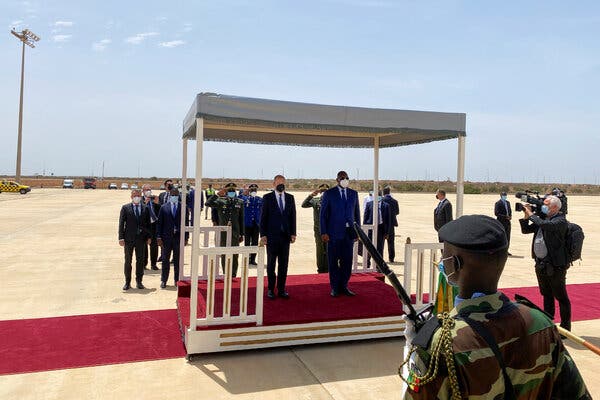Political Divide in Thailand: Navigating the Deepening Rift
The political divide in Thailand is deepening, causing social tensions and undermining cohesion in the country. The divide is fueled by conflicting political orders and entrenched ideologies, with accusations being made by both sides.
This polarization has led to the rise of reactionary political movements and pressure groups, such as the People’s Alliance for Democracy. The situation is exacerbated by the illegal position of seeking to end the monarchy, which many right-wing factions accuse their opponents of advocating.
This ongoing conflict has further divided Thai society and has been a catalyst for new civic activism, deepening the divide and setting the tone for political discourse in the country.

Credit: issuu.com
Political Divide In Thailand
Thailand has been grappling with a deepening political divide that has significantly impacted its society. The rift between different political camps has led to a state of discord and polarization, creating several implications for the country’s stability and well-being.
The Deepening Rift
The political divide in Thailand has intensified over the years, leading to a growing polarization between conflicting ideologies and beliefs. This division has permeated various aspects of society, creating a fragmented landscape that has significantly altered the country’s political dynamics.
Impact On Society
The deep-seated political division in Thailand has had far-reaching ramifications on its society. It has led to social unrest, strained relationships, and eroded trust among citizens. This has resulted in a heightened sense of disunity and discord, impacting the overall social fabric of the nation.
Divisive Political Camps
The political landscape in Thailand is marked by the presence of highly divisive political camps, each advocating for conflicting agendas and visions for the nation. This has further entrenched the polarization within the society, making it increasingly challenging to find common ground and foster unity.
Understanding The Political Landscape
The political divide in Thailand is becoming increasingly deep, leading to a divided nation. This divide has caused social tensions and conflicts, undermining social cohesion and creating a challenging political landscape in the country.
Power Distribution In Thailand
Thailand’s political landscape is characterized by a complex power distribution system. Power in Thailand is divided between the monarchy, the military, and various political factions. The monarchy, headed by the King, holds a significant amount of power and influence in Thai politics. The military, on the other hand, has played a dominant role in the country’s politics, often intervening in the government through coups and maintaining a strong presence to protect the monarchy.
Communist Or Democratic?
Thailand is primarily known as a democratic country, with a constitutional monarchy. It has a parliamentary system where the Prime Minister is the head of government. However, the country has faced political instability and divisions over the years. While Thailand is not a communist country, there have been allegations and debates about the influence of communism on certain political groups or movements in the past.
The Yellow Shirt Movement
One prominent political movement in Thailand is the Yellow Shirt Movement. The Yellow Shirts, also known as the People’s Alliance for Democracy (PAD), is a reactionary, monarchist group. They have been involved in protests against governments they perceive as being aligned with the forces seeking to undermine the monarchy.
The Yellow Shirts strongly advocate for preserving the monarchy’s position in Thai society and have been critical of certain political parties and movements that they believe threaten the monarchy’s stability. Their protests and demonstrations have played a significant role in shaping Thailand’s political landscape and have contributed to the deepening political divide in the country.
Overall, understanding the political landscape of Thailand requires an examination of power distribution, the democratic nature of the country, and the influence of movements such as the Yellow Shirts. These factors contribute to the complexity of Thailand’s political dynamics and the ongoing challenges it faces in achieving political stability and unity.
Emergence Of Right-wing Politics
The emergence of right-wing politics has deepened the political divide in Thailand, with two distinct factions clashing over their ideologies and beliefs. The polarization has led to heightened tensions and a lack of unity, posing challenges for the country’s political landscape.
Accusations And Illegal Monarchy Endings
The emergence of right-wing politics in Thailand has deeply intensified the country’s political divide. One of the key points of contention is the accusations made by the new right against their opponents, claiming they seek to end the monarchy – a position that is illegal in Thailand. These allegations have further deepened the rift between the opposing factions, fueling tensions and exacerbating the already existing political turmoil.
This political conflict has prompted discussions about the potential illegal endings of the monarchy. The right-wing movement in Thailand vehemently opposes any actions that could lead to the dissolution of the monarchy, aligning themselves with the traditionalist values and principles associated with the institution. On the other hand, their opponents argue for reforms and changes, criticizing the perceived archaic nature of the monarchy and its role in the country’s political landscape.
The clash between these clashing political orders has fractured Thai society. The divide extends beyond political ideology, creating a profound rift that undermines social cohesion. Even in moments of crisis, the deep-seated divisions persist, further exacerbating the political turmoil in the country.
It is worth noting that the emergence of right-wing politics and the forceful allegations against the opposition have significantly contributed to the intensification of the political divide. This situation poses challenges for the nation’s governance and stability, as finding common ground between these two polarized factions becomes increasingly challenging.
In summary, the emergence of right-wing politics in Thailand has heightened the political divide in the country. The allegations made against the opposition regarding the monarchy, which is an illegal position, have fueled tensions and deepened the existing political turmoil. The clash between these clashing political orders has further divided Thai society, posing challenges for governance and stability.

Credit: fsi.stanford.edu
Consequences And Challenges
The deepening political divide in Thailand has brought about a range of consequences and challenges, affecting various aspects of the society. This division has undermined social cohesion, fueled tensions, and influenced civic activism. Understanding these outcomes is crucial to navigate the complexities that arise from the polarization of political ideologies.
Undermined Social Cohesion
The political division has resulted in a severe impact on social cohesion in Thailand. The citizens’ sense of unity and solidarity has been significantly compromised, leading to a fragmented society. This erodes trust and mutual understanding among the populace, hindering efforts to work together towards collective progress.
Fueling Tensions
The political rift in Thailand has served as a catalyst for heightened tensions within the community. Conflicting ideologies and perspectives have led to confrontations and conflicts, creating an atmosphere of apprehension and unease. The ongoing polarization continues to exacerbate these tensions, posing significant challenges to fostering a harmonious and stable society.
Civic Activism
Amidst the political divide, civic activism has emerged as a prominent force, representing diverse viewpoints and advocating for change. This has bolstered the voice of the people and their participation in shaping the political landscape. However, the differing ideologies have also led to polarization within the realm of civic activism, presenting both opportunities and challenges for meaningful societal progress.
Current Developments
In recent years, Thailand has experienced a deepening political divide that has had far-reaching consequences for the nation. The political landscape has become increasingly polarized, with opposing factions growing more hostile towards each other. This division has not only impacted governance and policy-making but has also had significant implications for human rights and social cohesion. Let’s delve into some of the current developments that highlight the extent of this divide.
Postponed Pm Vote
One of the significant indicators of the political divide in Thailand is the repeated postponement of the Prime Ministerial vote. This delay reflects the ongoing power struggle between different factions vying for control. Each side is trying to manipulate the process to gain an advantage over the other, deepening the divide and hindering the formation of a stable government. The uncertainty and volatility surrounding this issue only serve to exacerbate tensions among the populace.
Growing Nation-hate Term
A disturbing term that has gained traction in Thailand’s political discourse is “Chung-Chart,” which roughly translates to “nation-hater.” This derogatory label is being used to vilify individuals or groups who hold opposing political views. It is a reflection of the escalating antagonism and animosity between factions, as they resort to name-calling and character assassination rather than engaging in constructive dialogue. The use of such inflammatory language further deepens the political divide and impedes any chances of finding common ground.
Human Rights And Political Divisions
The political divisions in Thailand have also taken a toll on human rights and civil liberties. As the factions fight for control and dominance, the rights of marginalized groups and individuals often fall by the wayside. Activists, journalists, and dissenting voices have faced increased scrutiny, intimidation, and even physical harm. The erosion of human rights in the midst of this political turmoil accentuates the deepening divide and further alienates those who dare to speak up for justice and equality.
In conclusion, the current developments in Thailand reflect a deepening political divide that permeates all aspects of society. The postponed PM vote, the emergence of derogatory terms, and the deterioration of human rights underscore the magnitude of the issue. If Thailand is to navigate these turbulent waters and forge a path towards unity and progress, it will require open dialogue, tolerance, and a genuine commitment to reconciliation.

Credit: www.crisisgroup.org
Conclusion
In this political climate, Thailand’s deepening divide presents significant challenges for its citizens. Polarization has led to not only political but also societal tensions. It is crucial for the nation to find common ground and foster unity. Bridging the gap in ideologies can pave the way for a more cohesive and prosperous future for all.



